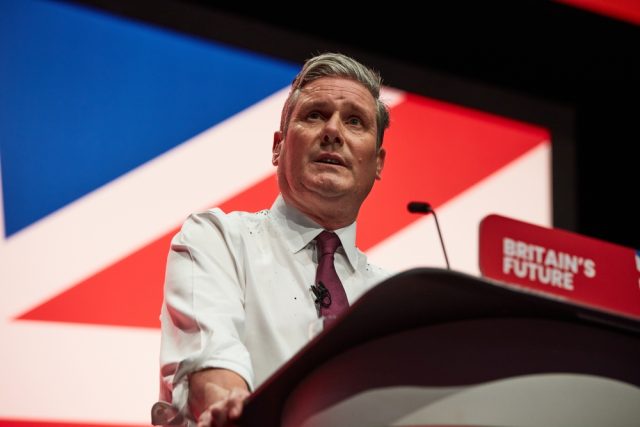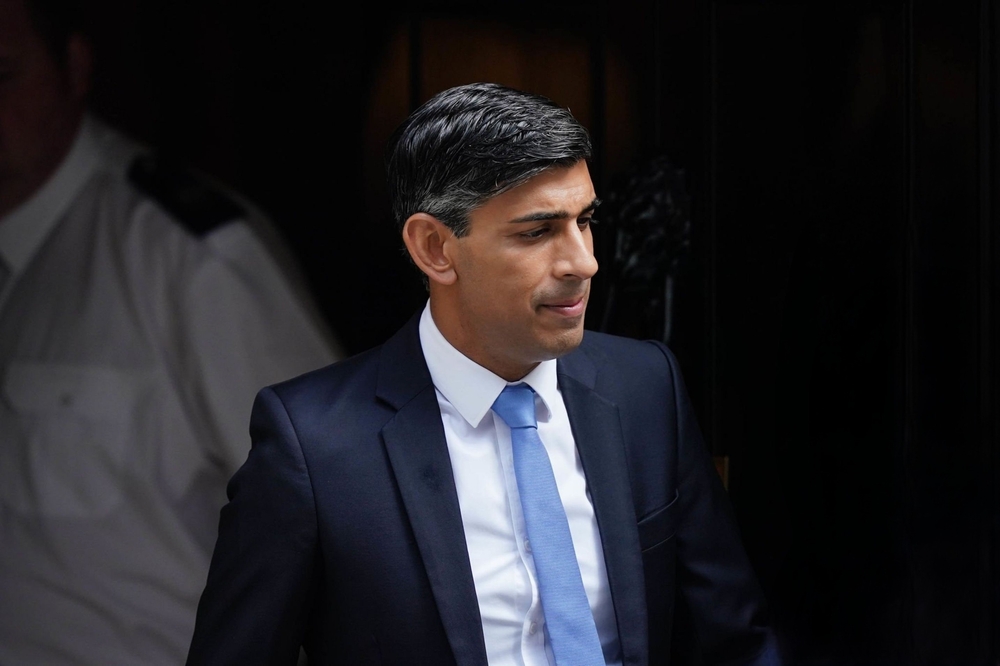
Conservative Prime Minister Sunak largely defeated
 The recent exit polls announced by the English media have depicted a remarkable victory for the Labour Party. The Conservative Prime Minister Rishi Sunak, who had urged for early elections in May, suffered a significant defeat.
The recent exit polls announced by the English media have depicted a remarkable victory for the Labour Party. The Conservative Prime Minister Rishi Sunak, who had urged for early elections in May, suffered a significant defeat.
The Labour Party secured 412 seats, a historic triumph, while the outgoing Prime Minister’s Conservative party only managed to secure 121 seats. Following closely behind, Ed Davey’s Liberal Democrats secured 71 seats. Notably, Reform UK, led by Nigel Farage, made significant gains, capturing over 14% of the popular vote, despite only securing 4 seats due to the single-round majority system used to elect the 650 new members of the House of Commons.
The results represent one of the biggest swings in British political history and a stunning defeat for the Conservative Party after 14 years in government, bringing a brutal end to Rishi Sunak’s premiership. Britain’s traditional third party, the Liberal Democrats, also enjoyed a huge surge, from winning just 11 seats in the 2019 general election to more than 70. Nigel Farage’s populist, right-wing Reform UK party won its first seats and came second in several others, splitting the right-wing vote and contributing to the Conservatives’ losses.
Meanwhile, in Scotland, the Scottish National Party (SNP) had lost numerous MPs, with its number of seats likely not to return “to double figures”, as it did in 2019 when it elected 48 MPs.
“I will serve each of you, whether you voted for me or not,” says Keir Starmer, the new British Prime Minister, adding that the country “voted for change” and is committed to relaunching a policy seen as a “public service”. Rishi Sunak ends the period of the Conservatives in the British government: a Thatcher-style libertarian, he had requested elections brought forward by six months concerning the end of the mandate, but his defeat marks a collapse of his image. Criticized for not being able to completely convince either the most right-wing soul of his party or the most moderate one. The citizens of the UK will remember him more than for what he did in government as the prime minister who handed the United Kingdom back to the Labor Party after 14 years.
“I thank the voters for their support, I look forward to continuing to serve them. The Labor Party won, I called Keir Starmer to congratulate him” said Sunak before giving way to Starmer. The new British Prime Minister will enter Washington on Tuesday for the 75th anniversary of the founding of NATO and then start the implementation of the Labor program after 14 years of opposition. On 18 July Starmer will welcome European leaders to his homeland in the birthplace of another of his great predecessors, Winston Churchill: the meeting will have the aim of consolidating relations with the European political community and to improve post-Brexit agreements.
“The mandate entails great responsibilities” comments the prime minister in pectore but he doesn’t seem worried “The change starts now. The Labor Party has changed, it is ready to serve our country, ready to bring Britain back to serving working people. The mandate comes with great responsibilities. We must bring politics back to serving the public. This is the great test of politics in this age: the fight for trust is the defining battle of our age. Country first, party second is a guiding principle.”
In short, if in continental Europe there are those who look to the right, the Brexit island this time steers in the opposite direction: towards the center if not exactly to the left, returning to relying on Labour. The immediate programmatic priorities will concern the accelerated launch of ordinary legislative initiatives on ecumenical issues such as the stability and relaunch of the economy, healthcare, public construction, security, and the fight against illegal immigration.
The proportions of the Conservative disaster are all contained in the ‘big names’ of the party who will lose their seats: among them, the Chancellor of the Exchequer Jeremy Hunt who nevertheless managed, against all odds, to maintain his role as a member of parliament in the Goldalming constituency and Ash with more than 23,000 votes and 42%. Furthermore, the sum of the approval of the Conservatives (23.7%) and Farage’s Reform UK (14.3%) reaches 38%, a good four points above Labour. A sign that, by working on synergies and not on divisions, we could change course again in the next elections.



 Subscribe
Subscribe